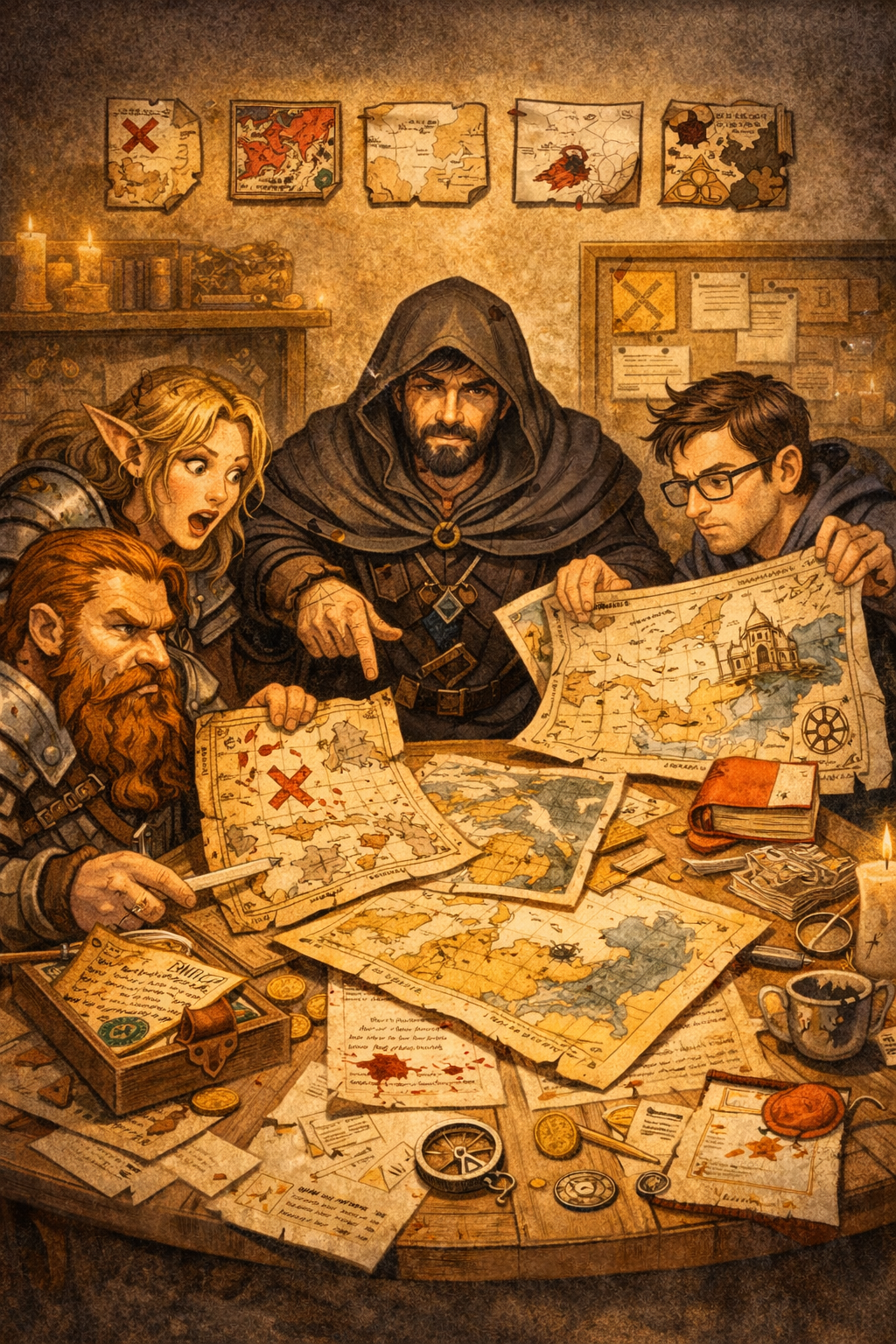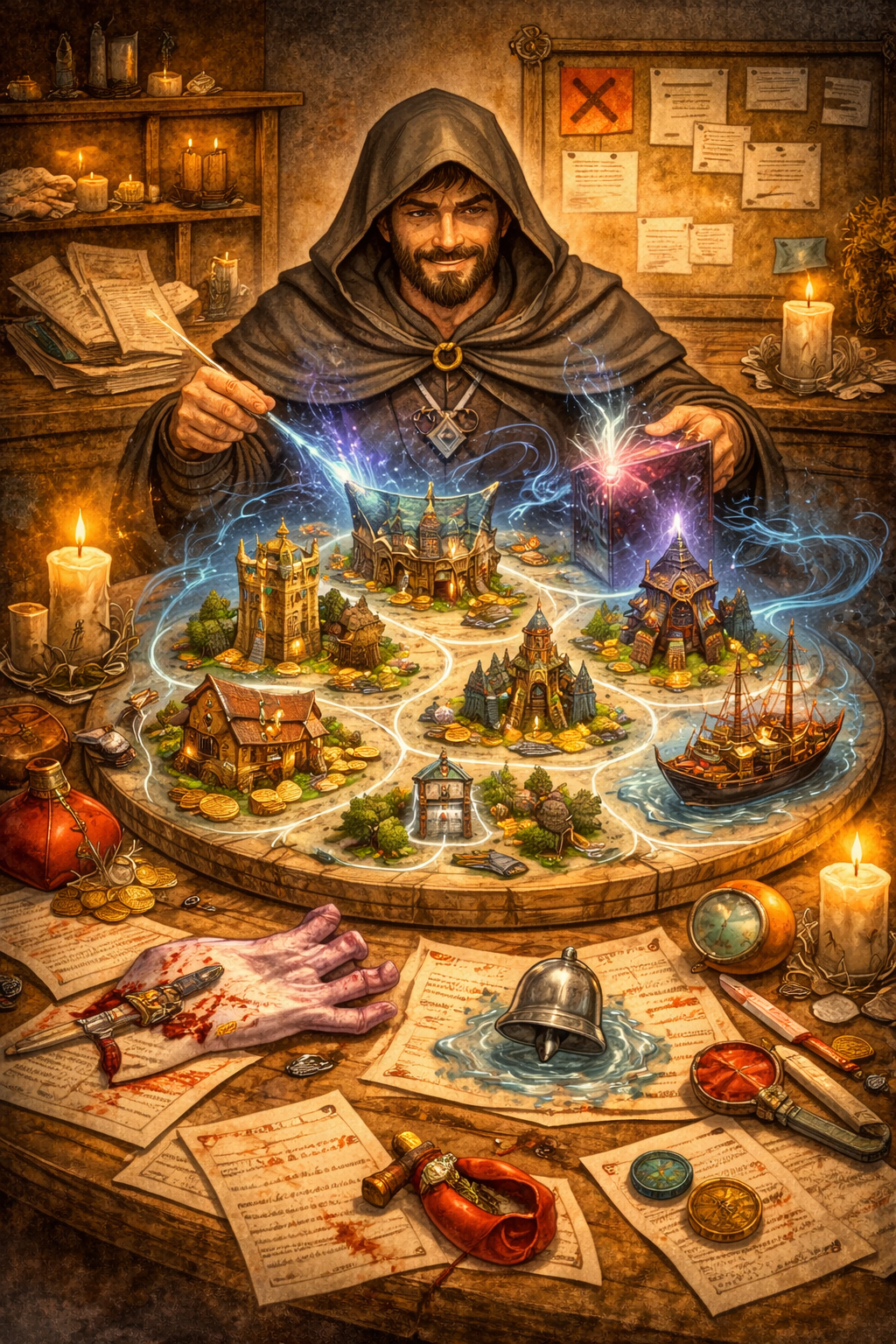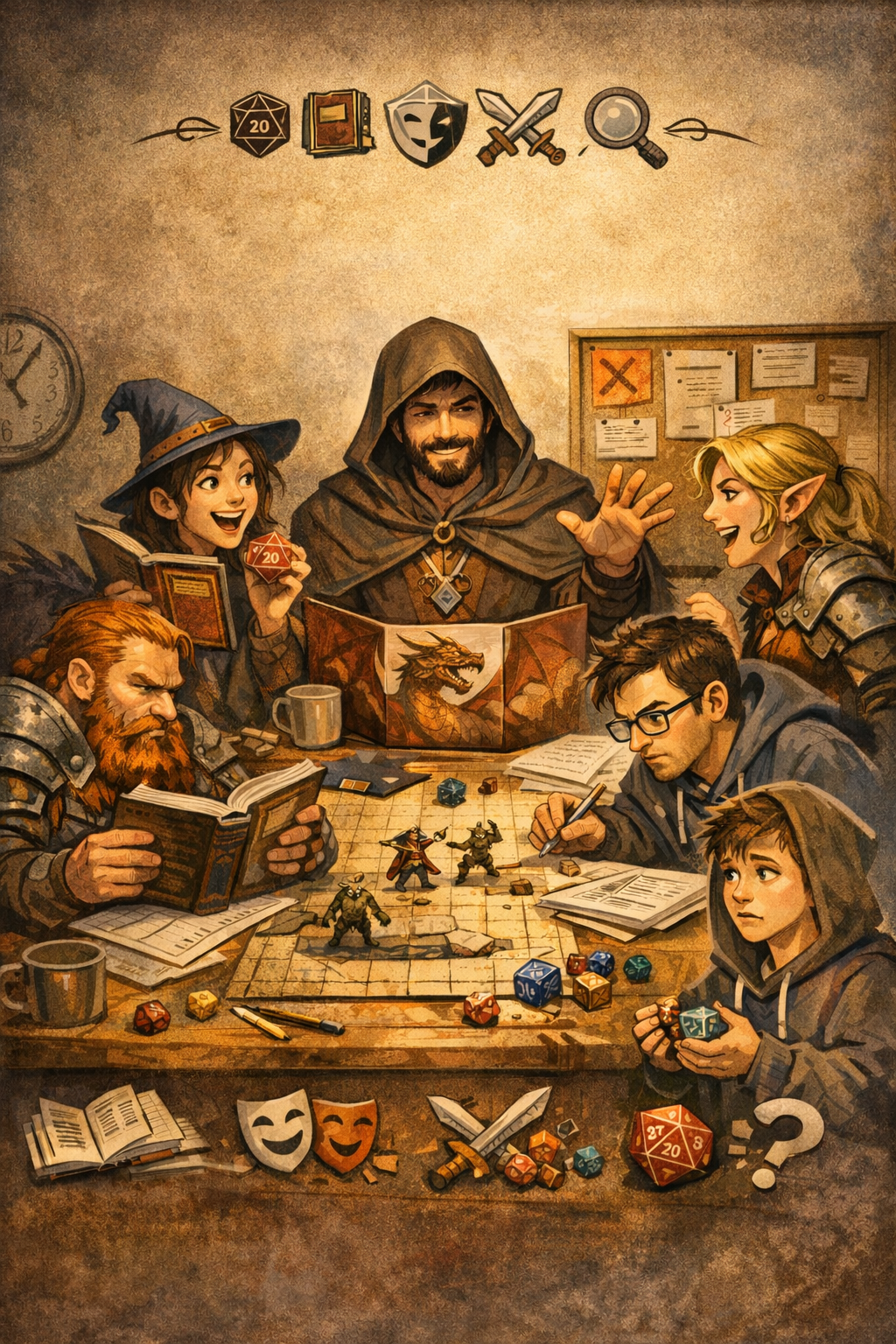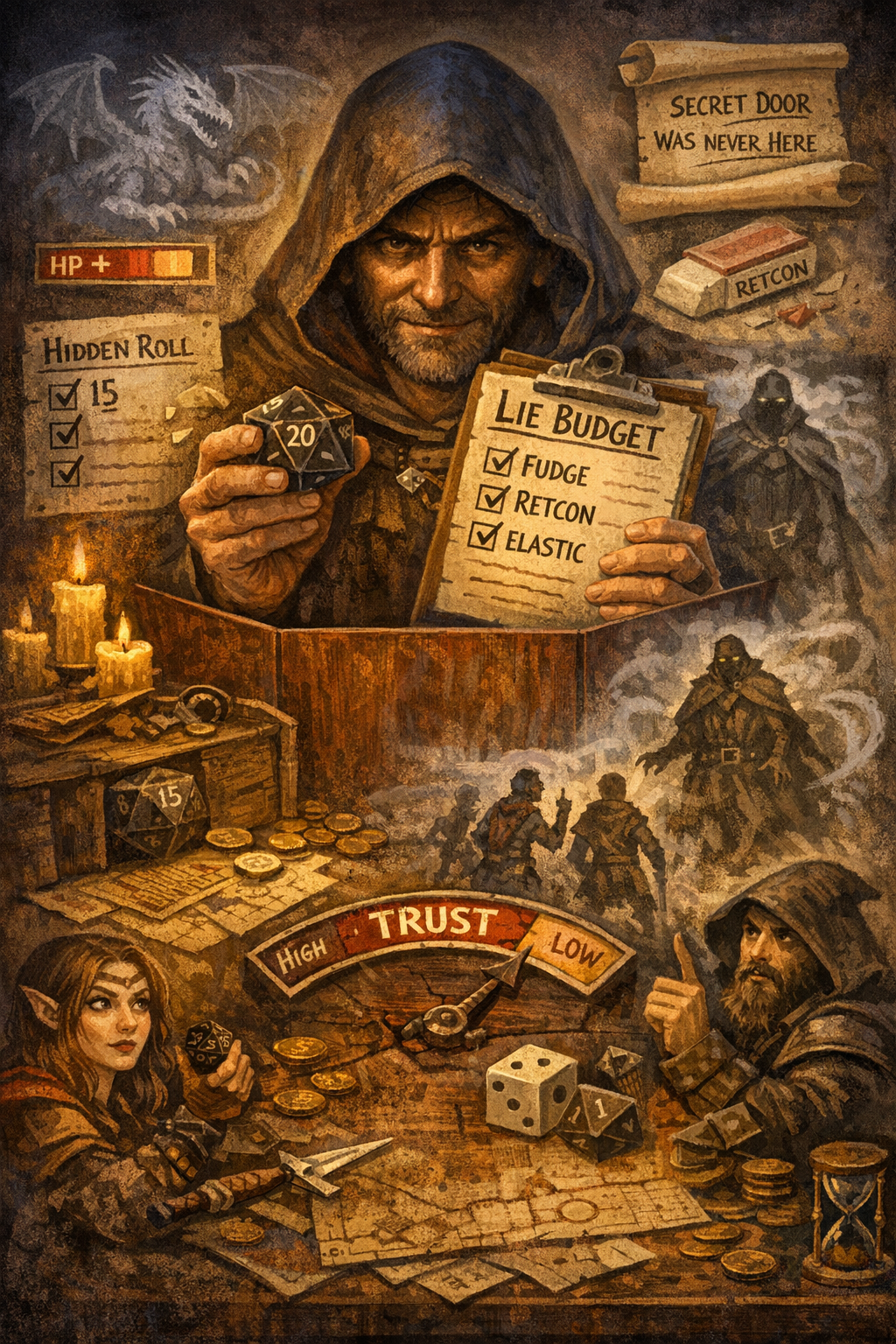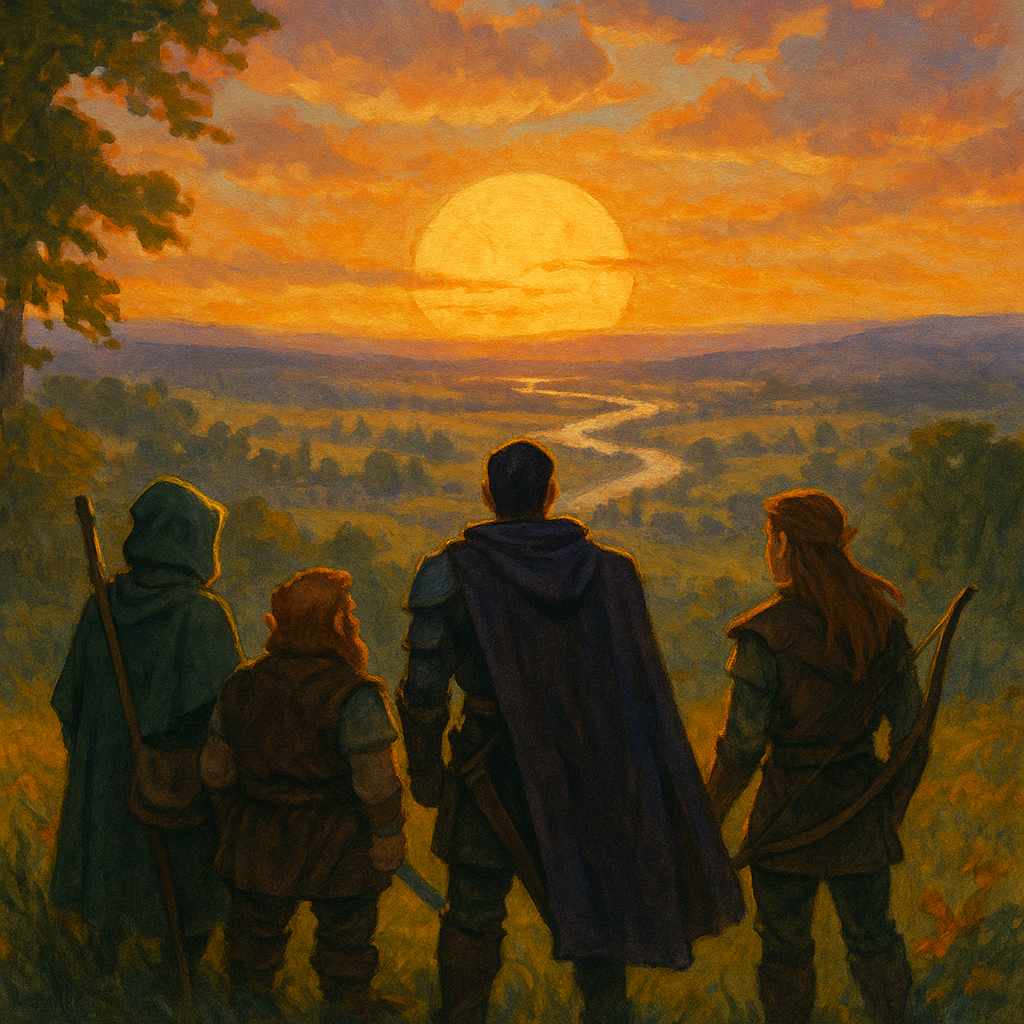Inclusive Gaming: Creating Safe and Welcoming Spaces for Diverse Players
Dear Readers, if you haven’t already been able to tell, I’ve been addressing some social issues revolving around D&D in recent history. I do so with an unapologetic attitude. These, I believe, are necessary conversations that we, as a gaming community MUST have, to further enhance, safeguard, and grow the very community we belong to. So, with no further ado…
Dear Readers, Dungeons & Dragons (D&D) is more than just a game—it’s a community. At its heart, D&D is about coming together with friends to tell stories, embark on adventures, and share in the joys of collaborative storytelling. However, for many players, finding a welcoming and inclusive gaming group can be a challenge. In this blog post, we’ll explore the importance of creating safe and welcoming spaces for diverse players in the world of D&D and offer practical tips for fostering inclusivity at your gaming table.
Understanding Diversity in D&D:
Diversity is a hallmark of the human experience, and it should be reflected in the worlds we create and explore in D&D. Diversity encompasses a wide range of factors, including race, ethnicity, gender identity, sexual orientation, disability, and neurodiversity, among others. Embracing diversity in our games not only enriches the storytelling experience but also fosters empathy, understanding, and respect among players.
One of the strengths of D&D is its ability to accommodate players of all backgrounds and identities. Whether you’re a human rogue, a tiefling sorcerer, or a non-binary dwarf cleric, there’s a place for you in the world of D&D. However, creating an inclusive gaming environment requires more than just token representation—it requires a commitment to equity, fairness, and respect for all players.
Fostering Inclusivity at Your Gaming Table:
Creating a safe and welcoming space for diverse players begins with setting clear expectations and boundaries for behavior at the gaming table. Establishing ground rules around topics like respect, consent, and sensitivity to diverse identities can help ensure that everyone feels valued and heard. Some key principles to consider include:
- Respect: Treat your fellow players with kindness, empathy, and respect, regardless of their background or identity. Avoid making assumptions or stereotypes based on appearance or perceived differences.
- Consent: Always ask for consent before introducing sensitive or potentially triggering topics into the game. Respect players’ boundaries and comfort levels, and be willing to modify or skip content if it makes anyone uncomfortable.
- Language: Be mindful of the language you use and the impact it may have on others. Avoid using derogatory or offensive language, and be open to feedback if someone expresses discomfort with certain terms or expressions.
- Representation: Strive to create diverse and inclusive representations of characters, cultures, and identities in your game world. Incorporate characters from a variety of backgrounds and perspectives, and be open to exploring themes of social justice and equity in your storytelling.
- Accessibility: Consider the needs of players with disabilities or other accessibility requirements when planning your gaming sessions. Provide accommodations such as large-print materials, wheelchair-accessible spaces, or assistive technologies as needed.
By incorporating these principles into your gaming sessions, you can create an environment where all players feel valued, respected, and included.
Addressing Common Challenges:
Despite our best intentions, creating an inclusive gaming space isn’t always easy. There may be challenges and obstacles along the way, but with patience, empathy, and open communication, these challenges can be overcome.
One common challenge is the presence of unconscious bias or microaggressions in the gaming community. These subtle forms of discrimination can manifest in various ways, such as making assumptions about someone’s abilities based on their appearance or excluding players from certain activities or conversations.
To combat unconscious bias and microaggressions, it’s important to educate ourselves and others about the impact of our words and actions. Engage in open dialogue with your fellow players about issues of diversity and inclusion, and be willing to listen and learn from each other’s experiences.
Another challenge is the lack of representation and visibility for marginalized groups within the gaming community. Historically, D&D has been dominated by white, heterosexual, cisgender men, leading to a lack of diverse voices and perspectives in the hobby. However, this is beginning to change as more players from underrepresented groups enter the gaming community and demand greater visibility and representation.
As players and creators, we have a responsibility to amplify marginalized voices and support initiatives that promote diversity and inclusion within the gaming industry. This may involve seeking out and supporting content created by diverse creators, advocating for inclusive policies and practices within gaming communities, and actively working to dismantle barriers to access and participation for marginalized groups.
Celebrating Diversity in D&D:
Despite the challenges we may face, it’s important to celebrate the diversity and richness of the D&D community. Every player brings their own unique perspective, experiences, and talents to the table, enriching the gaming experience for everyone involved.
One way to celebrate diversity in D&D is to incorporate diverse and inclusive storytelling into your games. Explore themes of identity, belonging, and social justice in your campaigns, and encourage players to create characters that reflect their own backgrounds and identities. By centering the experiences of marginalized groups in your storytelling, you can create a more vibrant and inclusive game world that resonates with all players.
Additionally, seek out and support initiatives that promote diversity and inclusion within the gaming community. This may include participating in diversity-focused gaming events, supporting crowdfunding campaigns for games created by marginalized creators, or volunteering your time and resources to organizations that promote diversity and inclusion in gaming.
Conclusion:
Inclusive gaming isn’t just about creating a safe and welcoming space for diverse players—it’s about recognizing the inherent value and dignity of every individual and embracing the richness of human diversity. By incorporating principles of respect, consent, representation, accessibility, and celebration into our gaming sessions, we can create a more inclusive and equitable gaming community where all players feel valued, respected, and empowered to be their authentic selves.
As players and creators, we have the power to shape the future of gaming and create a world where everyone has a seat at the table. Let’s work together to build a gaming community that reflects the diversity and complexity of the world we live in—a community where all voices are heard, all stories are valued, and all players are welcome.
Until next time, Dear Readers…
















